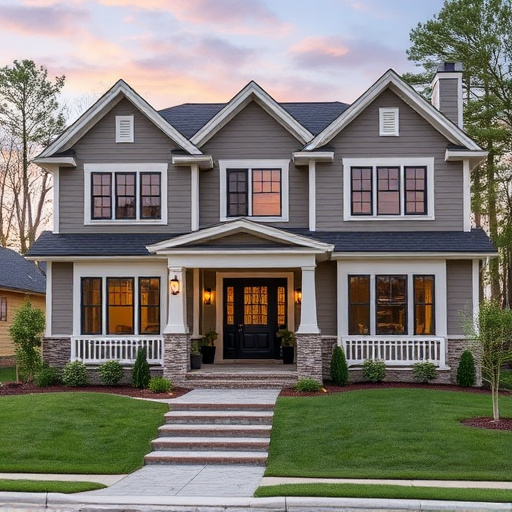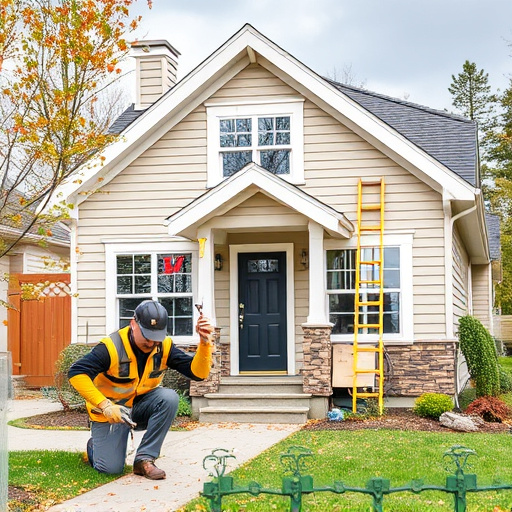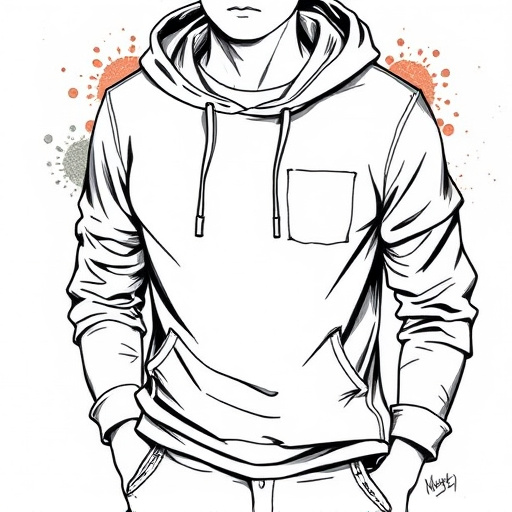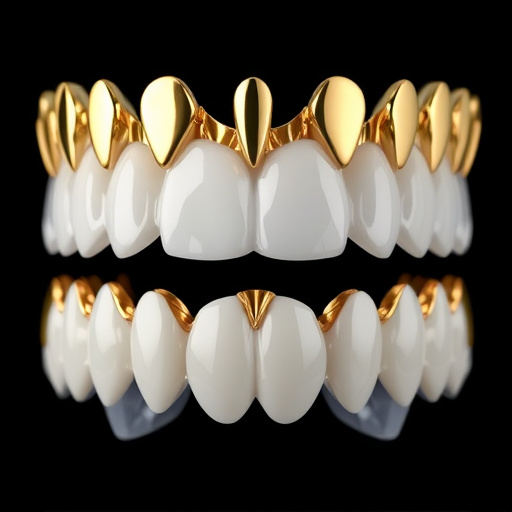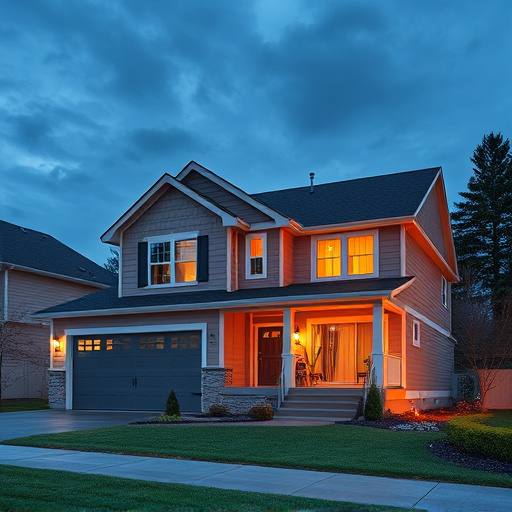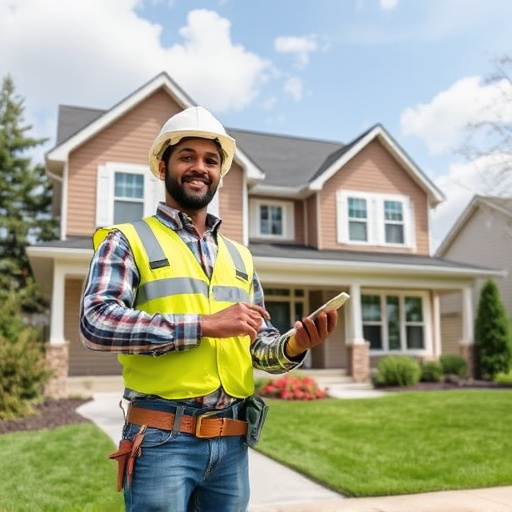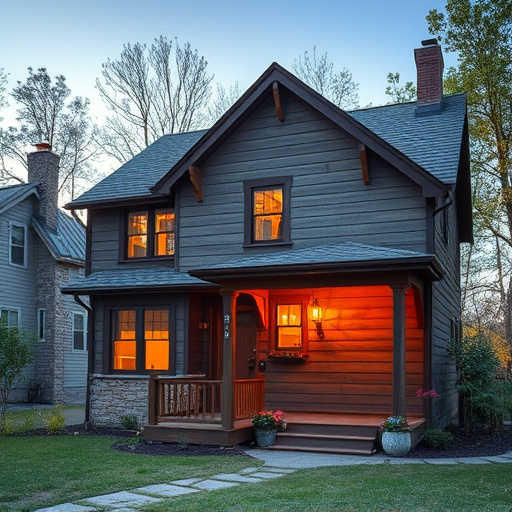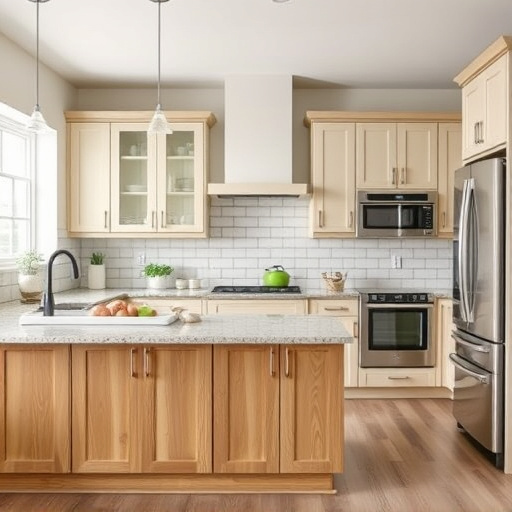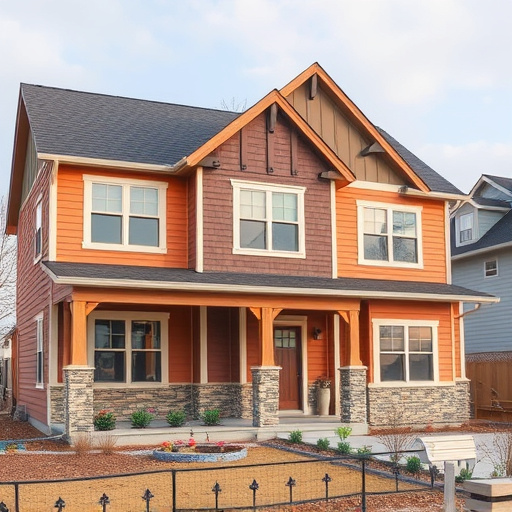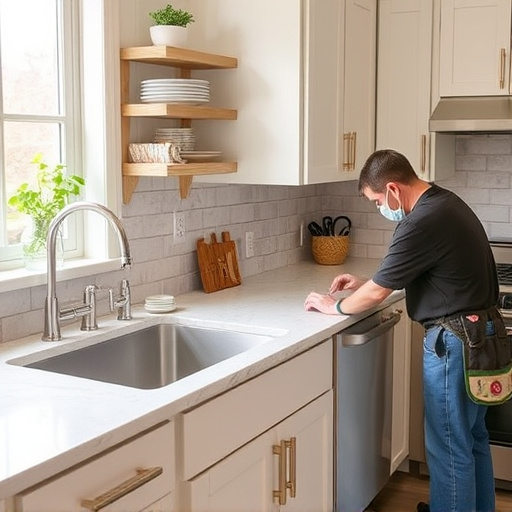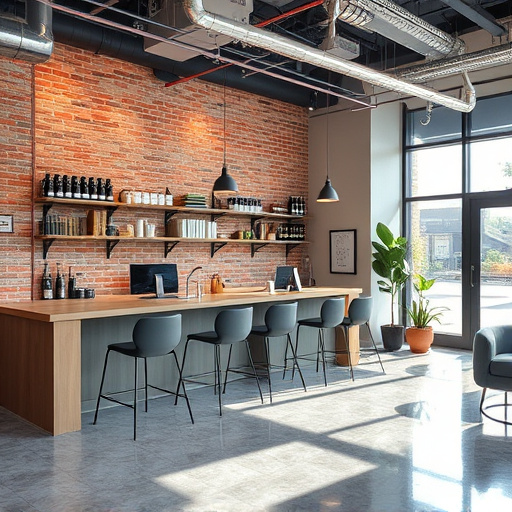By 2025, cabinet design trends will prioritize sustainability with recycled and eco-friendly materials, catering to environmentally conscious consumers. Smart technology integration like voice control and USB ports will transform kitchens and baths into intelligent environments. Modular systems offer flexibility for reconfiguration, while advanced AI capabilities promise customized, dynamic interior spaces.
“Unveiling the future of cabinet design, this article delves into the predictions of interior designers for 2025. From sustainable materials revolutionizing eco-conscious kitchens to technology integration that brings smart cabinets to life, these trends are set to redefine our living spaces. We explore how these innovations will shape aesthetics, functionality, and efficiency in cabinet design, offering a glimpse into the evolving landscape of modern interiors.”
- Future Trends Shaping Cabinet Design in 2025
- Sustainable Materials: A Focus for Eco-Conscious Kitchens
- Technology Integration: Smart Cabinets and Beyond
Future Trends Shaping Cabinet Design in 2025
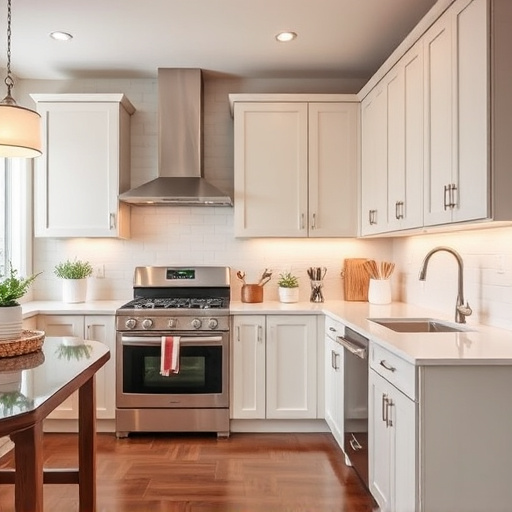
In 2025, cabinet design is poised to evolve significantly, influenced by a confluence of trends that prioritize both aesthetics and functionality. Interior designers predict a shift towards more seamless integration of technology, with smart cabinets featuring integrated lighting, USB ports, and even voice-activated controls becoming commonplace. This tech-driven transformation promises to enhance the user experience, making kitchens and baths not just functional spaces but truly intelligent environments.
Moreover, sustainability is set to play a prominent role in cabinet design. Eco-friendly materials like recycled wood, bamboo, and reclaimed metal will gain popularity, alongside innovative construction techniques that minimize waste. As consumers become increasingly conscious of their environmental impact, these sustainable practices will not only contribute to a greener planet but also offer unique visual appeal, enriching the overall look and feel of both traditional and modern kitchen and bath spaces. Additionally, flexibility and adaptability will be key, with modular cabinet systems allowing for easier reconfiguration and floor replacements over time, catering to evolving lifestyles and design preferences.
Sustainable Materials: A Focus for Eco-Conscious Kitchens
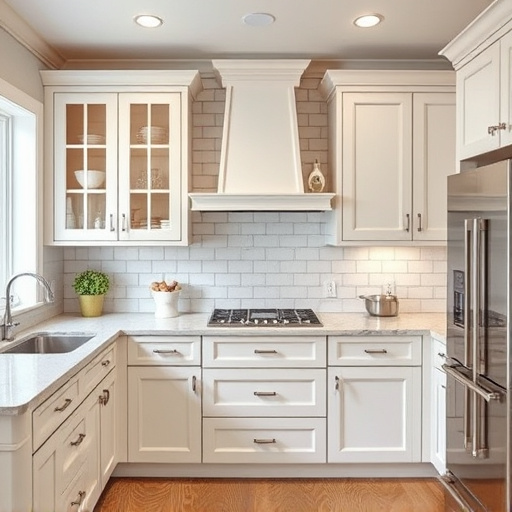
In the realm of cabinet design for 2025, sustainable materials are poised to take center stage, driven by an eco-conscious consumer base. Interior designers predict a surge in kitchen cabinets crafted from reclaimed wood, bamboo, and recycled metal, reflecting a growing trend towards reducing environmental impact without compromising aesthetics. This shift not only aligns with the increasing demand for green spaces but also opens doors for innovative design possibilities.
With home additions and renovations, especially in bathroom remodeling, the integration of sustainable materials offers a chance to create visually appealing and environmentally friendly spaces. As consumers become more aware of their carbon footprint, cabinet designers are exploring new ways to utilize eco-friendly resources, ensuring that future kitchens not only serve as functional hubs but also as symbols of responsible living.
Technology Integration: Smart Cabinets and Beyond
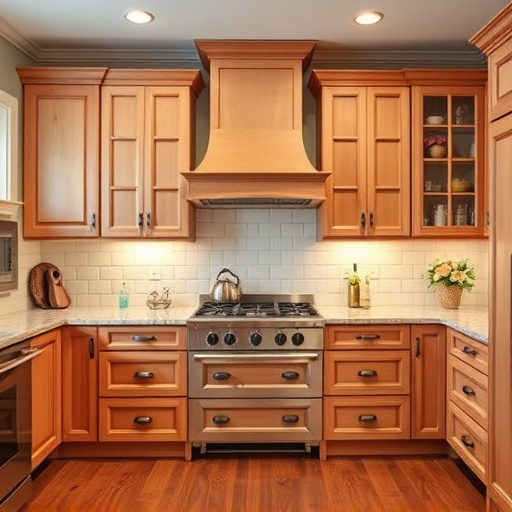
The year 2025 promises to be a landmark for cabinet design, driven significantly by technology integration. Smart cabinets, already making waves in today’s market, are set to become even more sophisticated, offering integrated sensors and AI capabilities that enhance functionality and aesthetics. These cabinets can adapt to users’ routines, lighting conditions, and even predict needs based on past behavior. This level of customization not only streamlines daily tasks but also contributes to a seamless, modern interior design aesthetic.
As technology continues to evolve, so does the potential for customized work in cabinet design. Home additions and home transformations will benefit from these innovations, creating dynamic spaces that cater to individual lifestyles. From voice-activated opening mechanisms to automated storage solutions, smart cabinets are poised to redefine how we interact with our living spaces. This fusion of technology and interior design is set to create a new era of elegant, efficient, and highly personalized cabinet design.
As we look ahead to 2025, interior designers predict a future where cabinet design blends innovative technology with sustainable materials. From smart cabinets that enhance daily routines to eco-friendly options crafted from recycled content, these trends promise to transform kitchens into both functional and aesthetically pleasing spaces. Embracing these advancements will not only cater to evolving consumer preferences but also contribute to a more sustainable and technologically advanced living environment.
